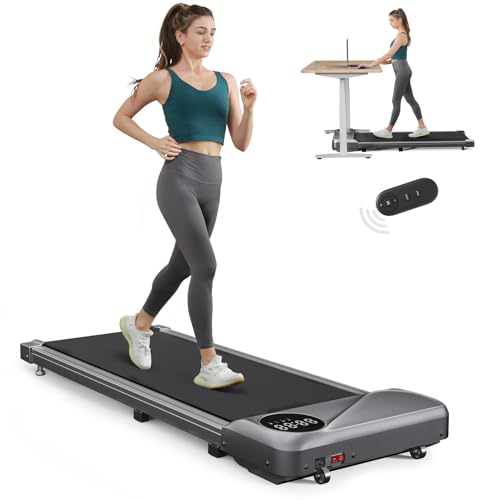A Look At Treadmill's Secrets Of Treadmill
The Comprehensive Guide to Home Treadmills: Everything You Need to Know
With an increasing focus on fitness and wellness in today's fast-paced world, home treadmills have emerged as a popular choice for those wanting to instill routine exercise into their regimens. Whether for aesthetic enhancement, convenience, or fitness tracking, treadmills use a versatile service for lots of physical fitness enthusiasts.
This short article checks out numerous aspects of home treadmills, offering insights into their features, benefits, and necessary factors to consider for potential purchasers. It likewise addresses typical concerns and misconceptions about these workout machines.
Tabulation
- What is a Home Treadmill?
- Advantages of Having a Home Treadmill
- Kinds Of Home Treadmills
- Secret Features to Consider
- Maintenance Tips for Your Treadmill
- FAQs about Home Treadmills
- Conclusion
What is a Home Treadmill?
A home treadmill is a physical fitness device created for running or walking while remaining in one location. Unlike Karol Santos running outside, it enables people to work out in the comfort of their homes. Treadmills can be powered by electrical energy or can be manual, needing the user to move the belt with their own effort.
Advantages of Having a Home Treadmill
The advantages of owning a home treadmill are numerous. Below are some key advantages:
- Convenience: Users can work out at any time, preventing weather condition restraints or gym schedules.
- Time Management: Reduced travel time to and from a gym, enabling quicker workouts.
- Personal privacy: The convenience of working out in a personal environment, ideal for those who feel uncomfortable in public settings.
- Adaptability: Adjustable speeds and inclines deal differed exercise choices, accommodating various physical fitness levels.
- Combination with Technology: Many modern-day treadmills come equipped with fitness apps and tracking systems that monitor development.
Kinds Of Home Treadmills
Home treadmills can be categorized into several types, each serving various needs and choices:
Type
Description
Motorized Treadmills
Electric motors that permit users to adjust speed and incline with push-button controls.
Manual Treadmills
Needs physical effort to move the belt, generally more compact and portable.
Folding Treadmills
Space-saving styles that can be folded up when not in use.
Treadmill Desks
Permit users to walk while working, integrating physical fitness into their everyday jobs.
Picking the Right Treadmill
Consider these elements when choosing the proper type of treadmill for individual usage:
- Space Requirements: Ensure the treadmill fits conveniently in your designated exercise location.
- Seek advice from Reviews: Look at user feedback and professional evaluations to comprehend performance and dependability.
- Budget: Set a clear budget, as prices can differ commonly.
- Use Frequency: Assess how typically the treadmill will be used to figure out sturdiness and features required.
Secret Features to Consider
When looking for a home treadmill, it's crucial to assess specific features that improve the exercise experience. Certain features to prioritize consist of:
- Motor Power: Look for a motor with a minimum of 2.0 CHP for trusted efficiency.
- Running Surface: A bigger running surface area is preferable, particularly for those who desire to sprint or take longer strides.
- Incline Options: Adjustable inclines increase exercise strength and help engage various muscle groups.
- Cushioning System: Good shock absorption can significantly reduce the impact on joints and prevent injuries.
- Technology Integration: Built-in heart rate monitors, Bluetooth connectivity, and incorporated exercise programs can enhance your fitness journey.
Upkeep Tips for Your Treadmill
A well-kept treadmill can last for several years. Regular upkeep is essential to ensuring optimum performance. Think about these maintenance ideas:
- Keep It Clean: Wipe down the surface regularly to remove dust and sweat.
- Oil the Belt: Apply silicone lube according to maker standards to lessen friction.
- Examine for Wear and Tear: Regularly inspect the belt and deck for indications of damage or excessive wear.
- Inspect the Motor: Clean dust from the motor area and guarantee proper ventilation to avoid overheating.
- Follow User Manual: Always refer to the user handbook for specific upkeep directions related to the model.
FAQs about Home Treadmills
1. Are home treadmills effective for weight-loss?
Yes, home treadmills can be really effective for weight reduction if used regularly as part of a balanced diet and fitness routines.
2. Just how much space do I require for a treadmill?
While it differs by model, a normal home treadmill will require at least 6.5 feet in length and 3 feet in width.
3. Do I require special shoes to use a treadmill?
While unique shoes aren't necessary, buying great quality running shoes can help avoid injuries and boost comfort.
4. Can I view TV or listen to music while utilizing a treadmill?
Definitely! A lot of modern treadmills have functions that allow users to see TV or listen to music through integrated speakers or via Bluetooth connections.
5. How long should I utilize a treadmill each day?
For optimum health benefits, go for at least thirty minutes of moderate-intensity exercise on the treadmill most days of the week.
Owning a home treadmill unlocks to convenient and flexible exercises suitable for individuals of all skill levels. Comprehending the different types, vital functions, and correct maintenance can help guarantee that your financial investment stays reliable and satisfying. As physical fitness ends up being a priority for many, home treadmills provide an exceptional chance for personal health and health, making it simpler than ever to integrate workout into life.
With the right resources and assistance, a home treadmill can end up being an essential part of one's physical fitness journey, assisting individuals attain their goals in a sustainable manner.
